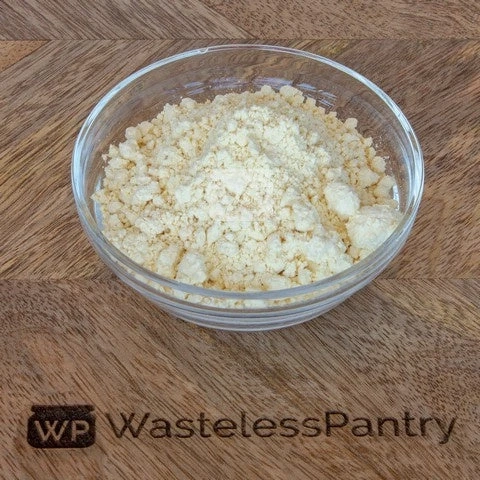There has been a surge in interest surrounding alternative flours as people seek healthier, gluten-free, and nutrient-rich options for cooking and baking. One such flour that has gained significant attention is chickpea flour, also known as gram flour. Derived from ground chickpeas, this versatile flour offers many benefits, making it a compelling addition to any kitchen pantry. From its nutritional profile to its culinary applications, let's delve into the five compelling reasons why you should consider buying chickpea flour.
Nutritional Powerhouse
Chickpea flour stands out for its impressive nutritional composition. Rich in plant-based protein, dietary fiber, and essential vitamins and minerals, it offers a balanced nutritional profile that can contribute to overall well-being. Chickpea flour contains significant amounts of folate, iron, magnesium, and vitamin B6, all of which play vital roles in various bodily functions, including energy production, immune system support, and red blood cell formation.
Gluten-Free Option
Chickpea flour is a valuable ingredient in the kitchen for those with gluten sensitivities or celiac disease. Unlike wheat-based flour, chickpea flour is naturally gluten-free, making it a safe and versatile choice for creating a wide range of dishes, from savory to sweet. This characteristic has contributed to chickpea flour's popularity among individuals who are looking to avoid gluten for health reasons.
Culinary Versatility
One of chickpea flour's most appealing aspects is its kitchen versatility. It can be used in traditional and innovative recipes, adding a unique twist to dishes. Chickpea flour is widely used in Mediterranean, Indian, and Middle Eastern cuisines for making dishes like falafel, socca (a savory pancake), pakoras (deep-fried fritters), and even as a thickening agent for soups and sauces. Its neutral flavor allows it to blend seamlessly into various recipes while providing a nutritional boost.
Vegan and Plant-Based CookingChickpea flour is a boon for those following vegan or plant-based diets. As a plant-based source of protein, it can be used to create satisfying and nutritious dishes without relying on animal products. Chickpea flour can make vegan omelets, frittatas, and scrambled egg alternatives, providing a wholesome protein source for those looking to diversify their meals.
Blood Sugar Management
Chickpea flour's complex carbohydrate structure contributes to its low glycemic index (GI), which means it has a slower impact on blood sugar levels. This property can be particularly beneficial for individuals aiming to manage their blood sugar levels or prevent sudden spikes in glucose. Using chickpea flour as a substitute for refined flour in baking and cooking can be a strategic move for maintaining steady energy levels and supporting overall health.
Conclusion
Chickpea flour emerges as a nutritional and culinary gem with many benefits. As the demand for alternative flour continues to grow, chickpea flour rightfully takes its place as a worthy addition to any kitchen, offering a world of creative and nutritious possibilities. So, whether you're seeking a protein-packed addition to your diet, exploring gluten-free options, or simply looking to experiment with new flavors, chickpea flour is a choice well worth considering.



